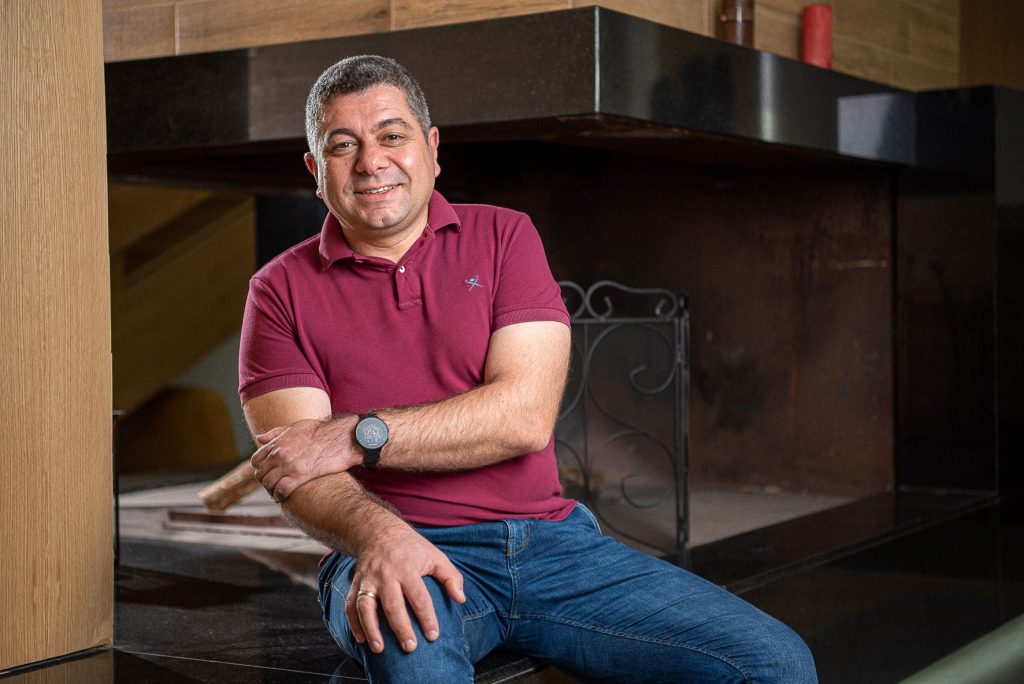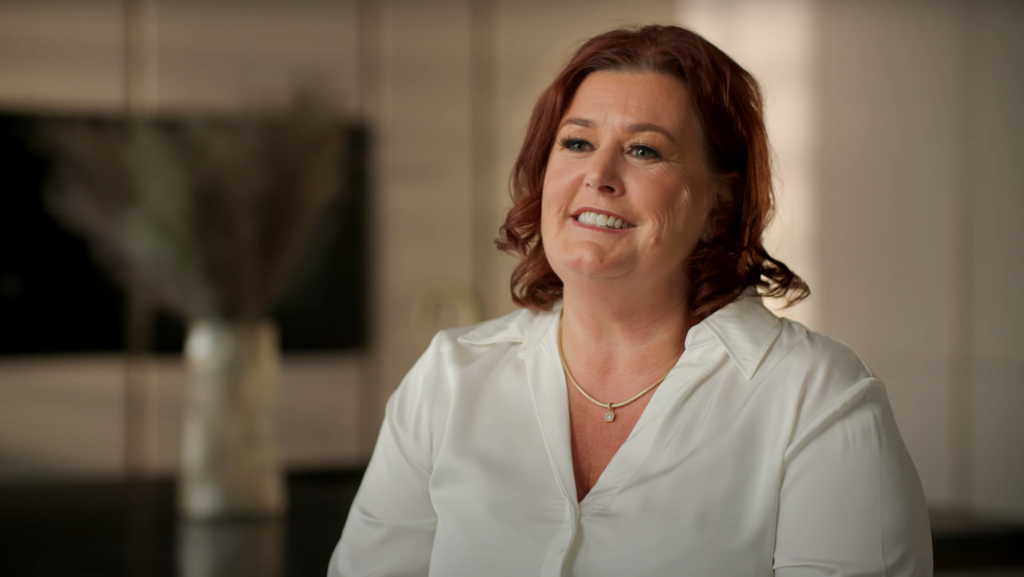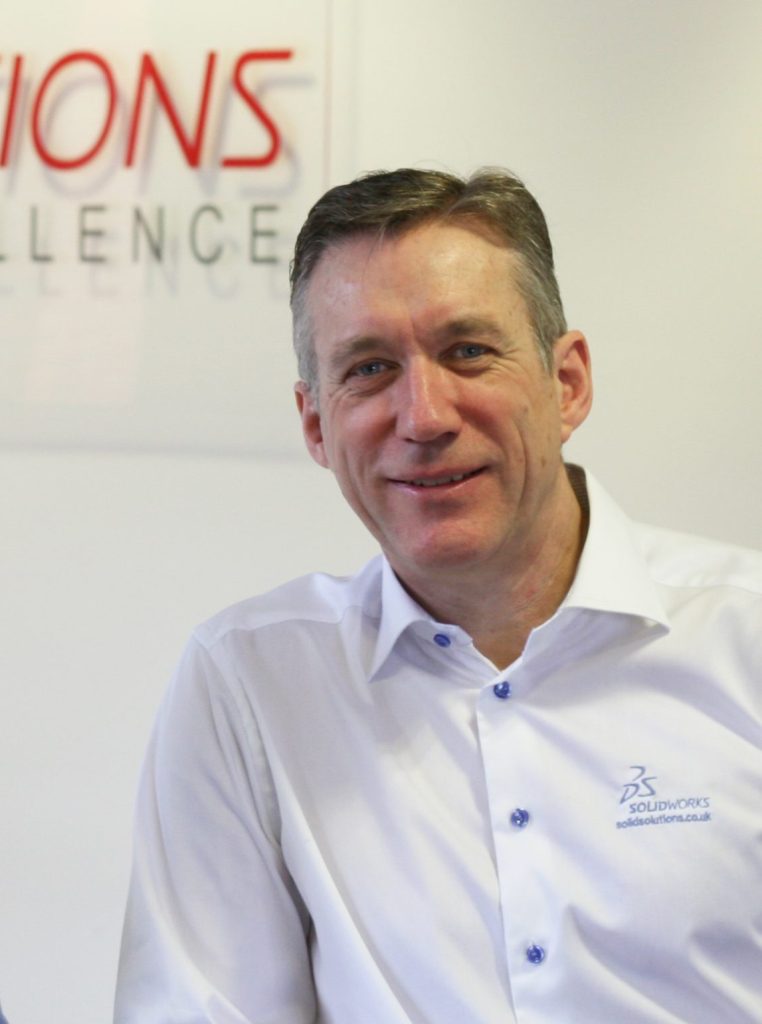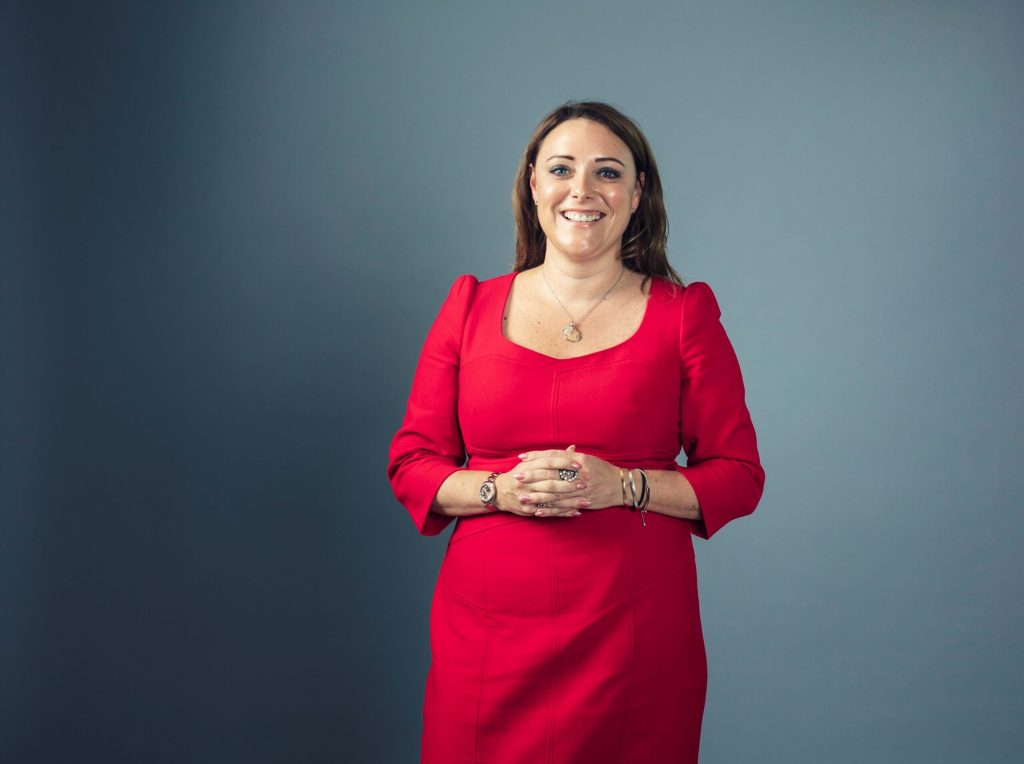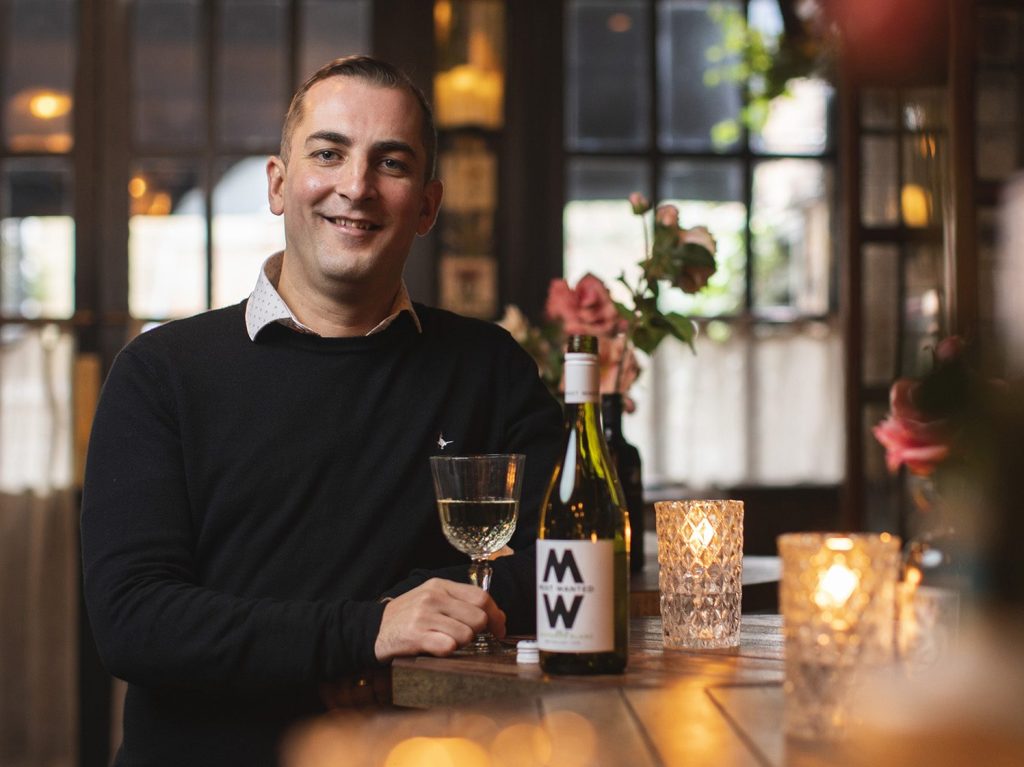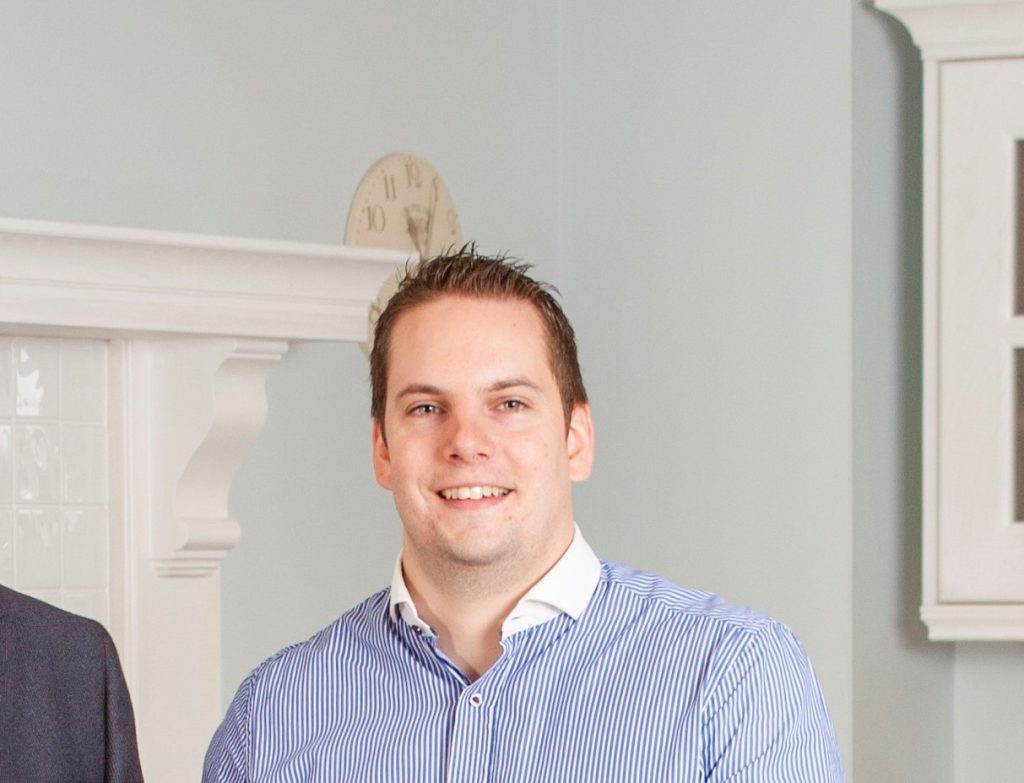In 2015, BGF invested £6 million into digital marketing business Zone. This funding was used to support three acquisitions, strengthening Zone’s European presence while also investing in a new head office in Kings Cross, London. In 2017, Zone was acquired by Nasdaq-listed professional services company Cognizant. Hear from one of Zone’s co-founders, James Freedman, below.
James Freedman, Zone: “We managed the business around family life”
As part of our Stories of Growth series, we hear from the co-founder of a fast-growth digital marketing business, based in London.
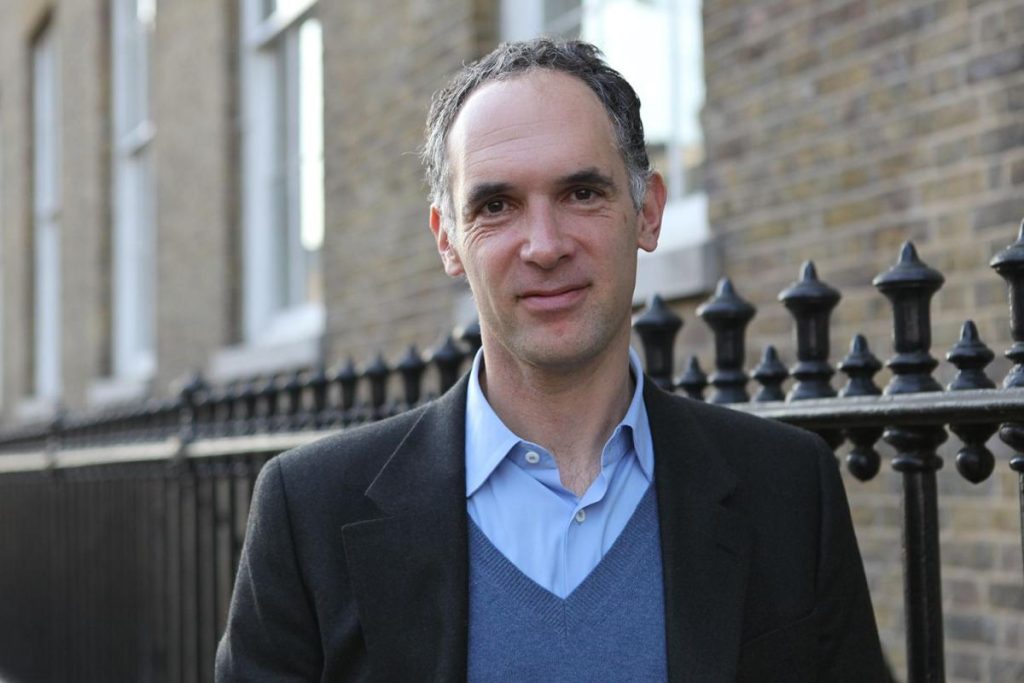
I wanted to be a filmmaker. I won a scholarship to study film in Los Angeles but, to cut a long story short, I ran out of money, met Anna who became my wife, moved to New York and then, by chance, ended up in the world of publishing.
It came about because my father was involved with Manchester United and someone had brought out an unauthorised magazine. They sought legal advice and the consensus was that, rather than try to shut them down, it would be better to bring out a genuine Manchester United magazine. My father called me and said, ‘You know media people, can you help me write articles?’
The timing was perfect. Manchester United had all these exciting new stars like Ryan Giggs and Eric Cantona. Football was sexy again after a chequered history in the seventies and eighties. This was in the early nineties – at the start of the new wave which would become Cool Britannia.
Nimble and flexible
We started the magazine in 1992 from our flat in Belsize Park, London. We later produced videos and books too, working with Liverpool, Arsenal and Chelsea on similar projects. We moved the business into an office in Camden and had the good fortune in 1997 to meet Simon Fuller, who was managing the Spice Girls. He was a big Manchester United fan and had seen what we had done building brands through publishing. We did a book called Girl Power and other stuff for him.
Through the nineties, we benefited from the rise of desktop publishing. We were nimble and flexible and had no one to answer to. It was a dream ticket, exciting and fun. We did magazines with England, the FA, the Backstreet Boys.
Towards the end of the decade, I could feel a change in the way people were consuming media. Everyone had a PC and people were going to fan forums and websites to get their news. In 1999, we sold to Future Publishing, which had just listed, and decided to start a new business, creating compelling digital content. That was our agency, Zone.
Not direct-to-consumer anymore
I have no digital skill. I never learned to code. The first job was to find a partner that could do the technical backend. We acquired a boutique tech consultancy called Quantum that built content management systems and databases. The founder, Mark, joined Anna and me.
Anna did all the legal and business stuff – she’s amazingly good at finance and accounting – and I was the corporate strategist. It was a pretty easy split. We never tread on each other’s toes and we have mutual respect for each other’s skills.
From 2000 to 2010, we struggled to hone our story. We hadn’t really understood the nature of how clients engage with agencies and it took for a while before we were able to work with conventional brands.
It was different when we were doing print publishing. Then, the customer – the great British public – wanted our magazines. We just had to stick them on the newsstand and they made us money. Suddenly we weren’t in a direct-to-consumer business anymore.
We were fortunate that there was a brilliant director of strategy and marketing at Channel 4 who believed in us and gave us a lot of business. There were lots of people who didn’t get it and went for the bigger guys. It took us a while to hire people who understood how agencies worked.
Towards the end of the 2000s, we started working with BT and then won a contract with Coca-Cola. This was at a time when social media was becoming more important. They understood our expertise in creating content across multiple platforms.
Tea and toast
We managed the business around family life. Our office was in Camden and the boys were at school in Primrose Hill. We would pick them up at 5pm and bring them into the office. Ros, our receptionist, would make them tea and toast then we’d all go out together for dinner. It was a family endeavour.
The people we employed were like a family too. We were the mummy and daddy of the business and we had these children that we nurtured alongside our own kids. We were all in it together with a shared purpose, intimately connected with family life.
“The people we employed were like a family too”
There was something nice about having the kids there – having a seven-year-old and a nine-year-old there when we met with a marketing director from a massive global corporation. Today, everyone has a dog in their office, but we had our children.
Promising the world
In February 2014, I sat down with the other partners to debate a question: ‘what’s your ambition for the business?’ This is the same question we also ask clients – beyond how many clicks you wants and all that, what is your ultimate ambition?
It was our lawyer who recommended BGF. We met a couple of private equity people and one had a really strong reputation, yet they totally failed to get our business or plan. The first people we met from BGF were good listeners and seemed to understand our business very well.
What I found great about BGF was the admiration for people in business and a respect for the complexity of growing a business, employing people, winning contracts. Other private equity guys promise the world and then the contract comes through and they’re trying to get one over on you, but BGF were straightforward from the start.
“BGF were straightforward from the start”
After BGF came in as an investor in 2015, we made several acquisitions. By the time we got to 2017, we were essentially the largest independent digital agency in the UK, in terms of building websites and mobile apps. We were getting onto pitches we hadn’t had a sniff at in 2010, getting cold calls from the biggest brands in the world. In a small world, we had made it.
My partners said: it’s time to have a bigger platform. The other driver was that, at that time, the big guys were trying to stamp us out by buying us or undercutting us. If we were up against a big company for a £100 million contract and we represented £2 million of that contract, they could give that part away for free or squeeze us out. It was the right time to do a deal.
Time to exit
Cognizant, a Nasdaq-listed professional services firm, were the right people at the right time. They had 250,000 staff, while we were at 250. Culturally, it was hugely different. I’d never worked in a corporate environment, and it’s not my world, but it was a good deal.
I left in 2019, after a year and a half. It was a rift to leave something we had grown and developed over a long period of time, but we have a nascent startup that I’m chairing, with former partners from Zone – and Anna’s involved in it. It’s called YUUP – a digital marketplace based in Bristol. It connects people who offer experiences to people who want to go clay pigeon shooting, foraging, jewellery making, you name it. Basically, if you want to do something fun, you go on YUUP.
Oh, and I just finished a Master’s in History of Art, which was fun.
